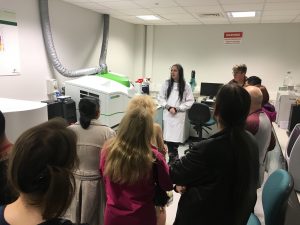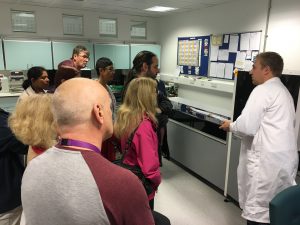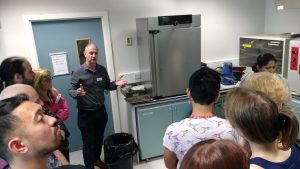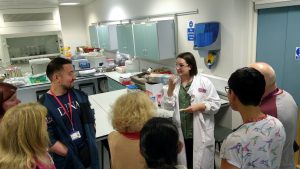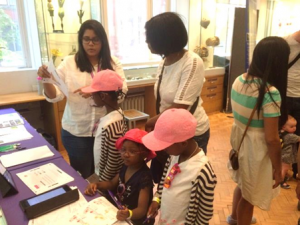Director of Stoller Biomarker Discovery Centre and Manchester Precision Medicine Institute
New high end instrumentation is being employed to ensure patients receive the right treatment at the right time at the right dose. To ensure that the maximum opportunities are taken from such platforms a highly skilled workforce is required. At the University of Manchester we have developed just such a highly skilled technical team to enhance the development of precision medicine and companion biomarkers.
The Stoller Biomarker Discovery Centre was established to aid in the development of new diagnostic tools and protein biomarkers to assist in diagnosis or to judge whether a patient is or will show a response to drugs. It is co-located with the Manchester Molecular Pathology Innovation Centre (MMPathIC) in a £3 million purpose built laboratory. The Stoller Centre was developed with a £13 million Medical Research Council grant and now has funding of about £25 million (inclusive of a £6 million equipment base) with MMPathIC. MMPathIC takes forward findings from the Stoller Centre, partnering companies and other research laboratories to develop tests and devices that can be used in the NHS and elsewhere to take clinical decisions. The funding acquired has been awarded for a platform and a concept that absolutely relies on the highly skilled technical staff we have employed to deliver data and information via the use of highly complex molecular weighing machines known as mass spectrometers plus other complex pieces of equipment. In mass spectrometry precision, accuracy and reproducibility are everything. Maintaining all these criteria needs to take place within a strictly controlled laboratory environment where every sample has to be tracked and every manipulation performed on a sample needs to be recorded. Then, all raw data has to be stored and archived and also processed into information, a huge task given the amount of data we produce. This means our colleagues had to develop and build a complex informatics structure from scratch.
In the Stoller Biomarker Discovery Centre we began with a shelled out piece of laboratory space and built the laboratory from nothing. We appointed excellent technical staff who helped to develop the project from the ground up taking into account sample tracking and all other features mentioned above. We have made a globally unique centre based on their team work, willingness and hard work. For example, in one strand of its activity the Stoller Centre has industrialised the process of finding and quantifying proteins in blood, synovial fluid or cells. With the help of our technical staff we developed the standard operating procedures to perform these assays in a fashion that would be acceptable under good clinical practice guidelines. This involved standard procedures to “cut” proteins with enzymes, chemically reduce them and alkylate them. We often need to extract proteins at very high pressure and approaches to do that also had to be developed to best practice standards, again protocols had to be developed to do this.
Now we sit on a huge opportunity to improve healthcare thanks to the work of our staff in the Stoller Centre in the past and the future. We have projects in arthritis, leukaemia, ovarian cancer, psoriasis, lupus erythematosus, schizophrenia, dementia, heart failure and others. We are making and we will make a different thanks to our integrated and excellent technical support team.





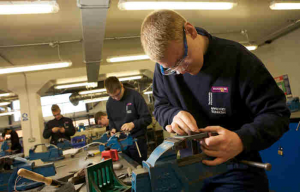 Recruitment for a September 2017 start is underway, see following link:
Recruitment for a September 2017 start is underway, see following link:
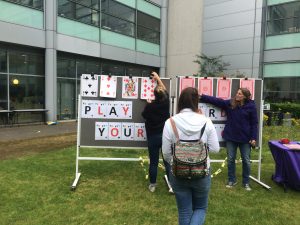


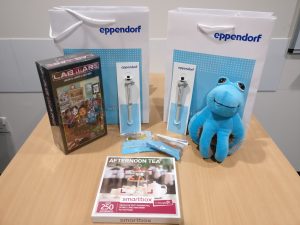


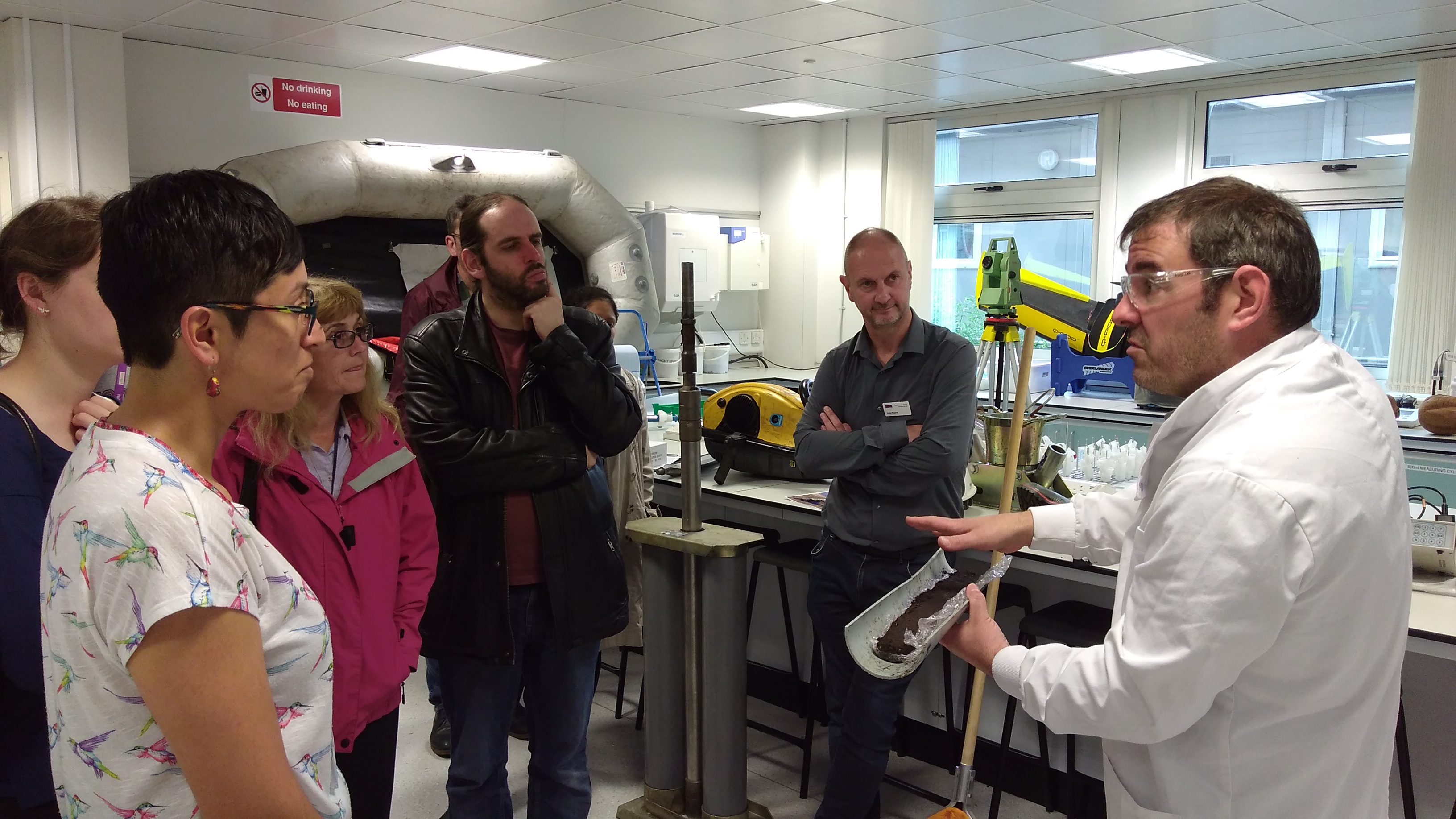
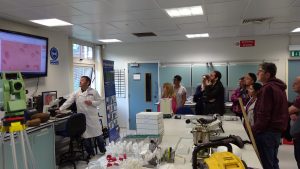 Fidel Peacock “I was really impressed by the lengths with which John and his colleagues at the Geography Labs went to accommodate us. To start, we had a freebie (LED light keychain) commemorating 125 years (1892-2017) of Geography at Manchester. Not only could we observe as many of the different equipment and facilities they had but we also learned about the breadth of their applications. First, we were shown how soil and water samples were taken, the various equipment they took on fieldtrips (such as a CO2-measuring chamber) and the different types of tree pollens under a microscope.
Fidel Peacock “I was really impressed by the lengths with which John and his colleagues at the Geography Labs went to accommodate us. To start, we had a freebie (LED light keychain) commemorating 125 years (1892-2017) of Geography at Manchester. Not only could we observe as many of the different equipment and facilities they had but we also learned about the breadth of their applications. First, we were shown how soil and water samples were taken, the various equipment they took on fieldtrips (such as a CO2-measuring chamber) and the different types of tree pollens under a microscope.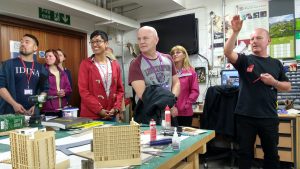 Lastly, we walked across to the basement of the Humanities Bridgeford St. building where the workshop for architect students was housed. We had the chance to speak and listen to architect students about their latest projects as well as the workshop technicians about how they supported the students’ visions. Besides all the equipment you would expect with model making, they also had a 3D printer which could be really handy for anyone in the University.
Lastly, we walked across to the basement of the Humanities Bridgeford St. building where the workshop for architect students was housed. We had the chance to speak and listen to architect students about their latest projects as well as the workshop technicians about how they supported the students’ visions. Besides all the equipment you would expect with model making, they also had a 3D printer which could be really handy for anyone in the University.